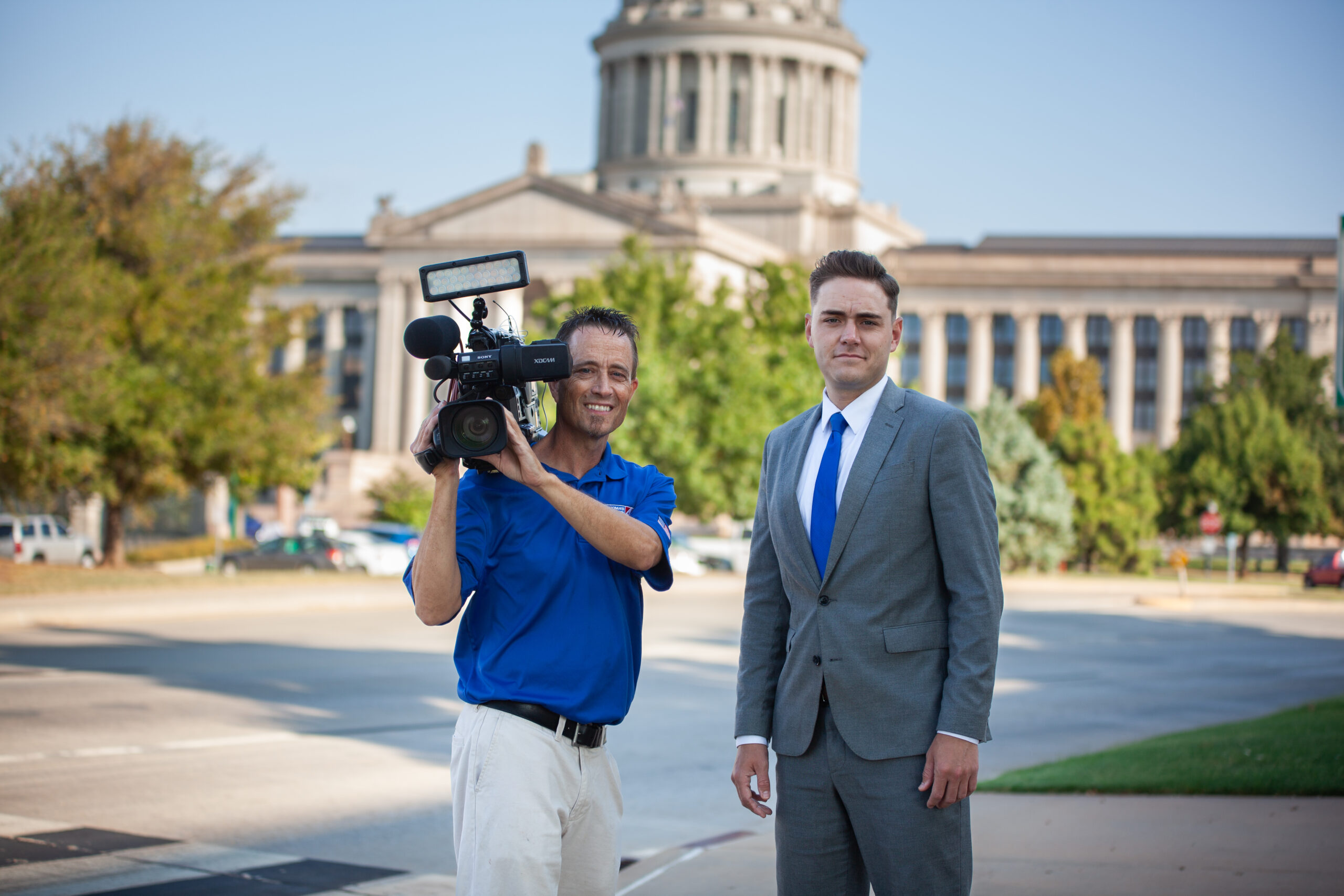Oklahoma City, OK — Oklahoma’s oldest TV station is fighting back against state officials who have repeatedly barred its journalists from public meetings and press conferences—all without explanation.
Attorneys from the Institute for Free Speech, along with local counsel Bob Nelon of Hall Estill, filed a federal lawsuit today on behalf of three reporters and their employer, the owner of Oklahoma City television station KFOR-TV, against Oklahoma Superintendent of Public Instruction Ryan Walters and Oklahoma State Department of Education Press Secretary Dan Isett.
Although KFOR-TV is a news outlet with a storied, 75-year history, the defendant state officials have blocked the station’s reporters from attending State Board of Education meetings and Secretary Ryan’s press conferences. Isett has physically prevented KFOR-TV journalists from entering spaces accessed by other media members.
The lawsuit, filed in the U.S. District Court for the Western District of Oklahoma, points out that officials block KFOR-TV from board meetings and press conferences, despite the fact that the station holds valid press credentials issued by the Legislative Services Bureau, the credentialing agency for the Capitol Building where these events take place. These credentials are renewed annually and accepted by every other state agency for access to government proceedings.
KFOR-TV reporters have been consistently relegated to “overflow” rooms—the only outlet to receive such treatment—or completely denied entry, while other media outlets freely attend these public events and are able to ask questions and perform other routine journalistic duties. The plaintiffs argue that this treatment violates their First Amendment rights and impedes the ability of their journalists to report on matters of public interest.
The officials denying access have offered no explanation for this ban, other than vague references to KFOR-TV not being a “legitimate” news outlet. This is an especially implausible explanation for a TV station whose history of informing the public dates to 1949.
At the heart of the complaint is the allegation that state officials are engaging in unconstitutional viewpoint discrimination, arbitrarily deciding which media outlets can attend public events. The suit seeks to prevent state officials from denying press access based on perceived “legitimacy” or viewpoint, and to strike down any unwritten policies limiting media attendance.
“The First Amendment prohibits government officials from selectively excluding journalists and media outlets,” noted Institute for Free Speech Senior Attorney Charles “Chip” Miller. “The official responsible for leading the education of Oklahoma’s children is acting as a ‘superintendent of censorship’ instead of setting an example that teaches the importance of free speech.”
“This shocking assault on the freedom of the press isn’t just about our station losing its ability to inform the public—it’s about ensuring open access to government proceedings for all journalists,” explained Dylan Brown, a KFOR-TV reporter who has faced repeated exclusion at Oklahoma State Department of Education proceedings.
The lawsuit seeks an immediate restraining order against further blocking of the station’s journalists to ensure equal access for all credentialed media and to prevent future viewpoint-based exclusions. This relief is particularly urgent, as the next State Board of Education meeting and press conference is scheduled for September 26. Without swift court intervention, KFOR-TV’s journalists risk being excluded once again from this newsworthy public event, perpetuating the cycle of press freedom violations and denying the public access to KFOR-TV’s independent reporting on critical education matters.
To read the full complaint in Nexstar Media, Inc. d/b/a KFOR-TV, et al. v. Ryan Walters, et al., click here. Photos of our clients are available for media use on our case page here. Read more about our clients’ story here.
About the Institute for Free Speech
The Institute for Free Speech promotes and defends the political speech rights to freely speak, assemble, publish, and petition the government guaranteed by the First Amendment.














